Shows
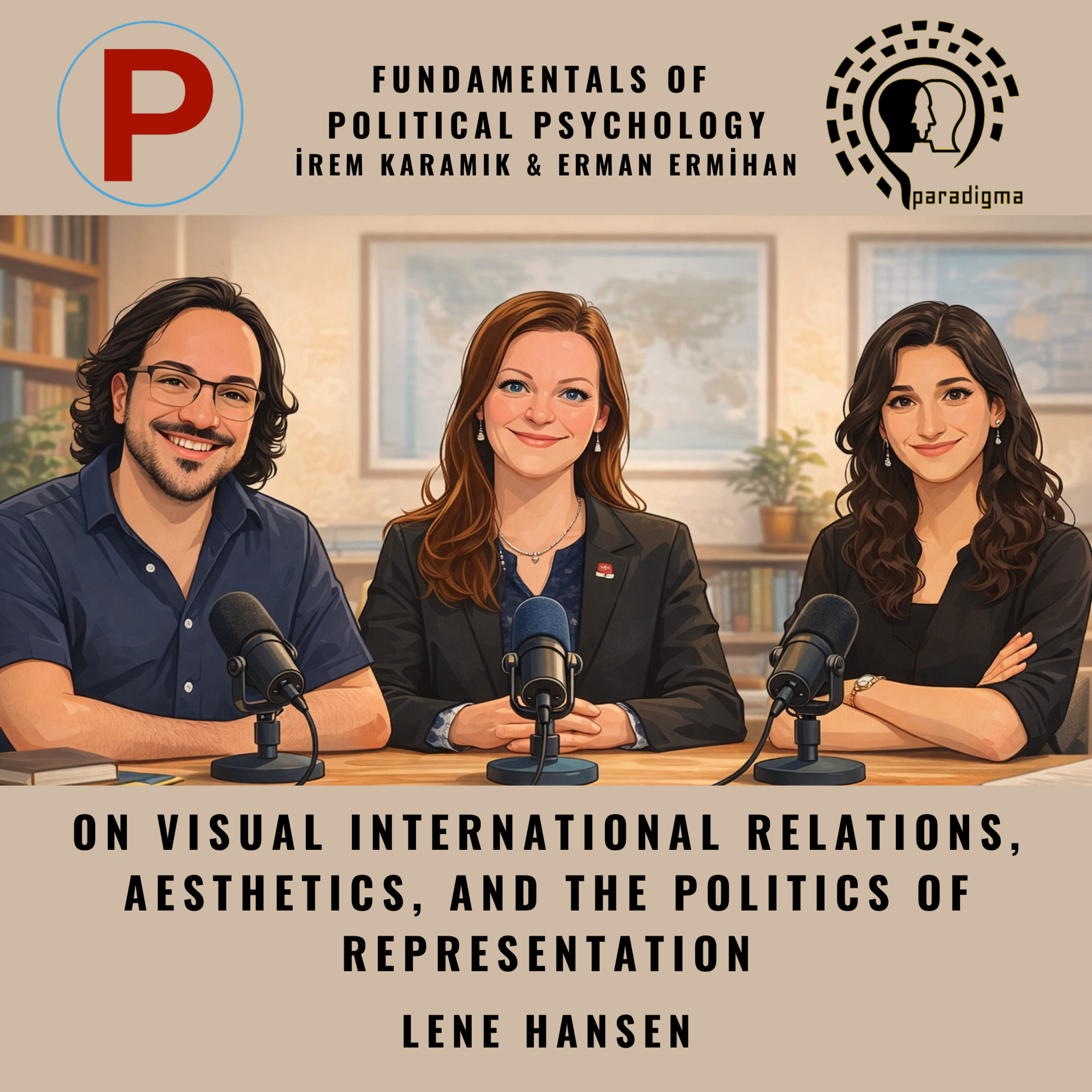
ParadigmaOn Visual International Relations, Aesthetics, and the Politics of RepresentationLene Hansen is a Professor of International Relations in the Department of Political Science, University of Copenhagen. She is the author of Security as Practice: Discourse Analysis and the Bosnian War, Routledge 2006, and co-author with Barry Buzan of The Evolution of International Security Studies, 2009. Lene Hansen has written articles and book chapters on a range of topics, including poststructuralist theory and methods, feminist IR theory, cyber security, securitization theory and images and international relations.
2025-12-2049 min
Earlylands in ConversationEarlylands in Conversation - Episode 18 - Professor Michael Beckley on the Changing Face of Great Power CompetitionThe release earlier this month of the Trump administration's new National Security Strategy vividly captures the tectonic shifts that are occurring in global affairs. For many observers of the international order, it can feel as if there is no framework or structure to the chaotic period in which we are living. If that opinion resonates with you, then today's guest may be able to offer an analytic lens through which to understand our present state of affairs.Professor Michael Beckley published in the November/December 2025 issue of Foreign Affairs a feature article entitled "The Stagnant Order." In...
2025-12-1643 min
Hardyoni^Download PDF The Global Transformation: History, Modernity and the Making of International Relations (Cambridge Studies in International Relations, Series Number 135) BY Barry Buzan on Mac New VolumesTo Read or Download The Global Transformation: History, Modernity and the Making of International Relations (Cambridge Studies in International Relations, Series Number 135) by Barry Buzan
Visit Link Bellow
You Can Download Or Read Free Books
Link To Download : https://booklibraryed.com/?book=1107630800
Available versions: EPUB, PDF, MOBI, DOC, Kindle, Audiobook, etc.
Reading The Global Transformation: History, Modernity and the Making of International Relations (Cambridge Studies in International Relations, Series Number 135)
Download The Global Transformation: History, Modernity and the Making of International Relations (Cambridge Studies in International Relations, Series Number 135)
PD...
2025-09-1000 min
Hardyoni->Read or Download ePub Re-imagining International Relations : World Orders in the Thought and Practice of Indian, Chinese, and Islamic Civilizations By Barry Buzan on Ipad New EditionLink To Download : https://softebooks.com/?book=1009074911
Available versions: EPUB, PDF, MOBI, DOC, Kindle, Audiobook, etc.
Reading Re-imagining International Relations : World Orders in the Thought and Practice of Indian, Chinese, and Islamic Civilizations
Download Re-imagining International Relations : World Orders in the Thought and Practice of Indian, Chinese, and Islamic Civilizations
PDF/EBooks Re-imagining International Relations : World Orders in the Thought and Practice of Indian, Chinese, and Islamic Civilizations
You Can Download Or Read Free Books
2025-09-1000 min
TRIUM ConnectsE37 - What comes next? Putting current attacks on the global market into a historic contextThe policies in the first 100 days of the Trump administration have resulted in an extraordinary time of uncertainty and change in the way the global economy works and how it will function in the future. The shock at the speed and scope of the undermining of the current system regulating global trade is real. When we feel disorientated by our current experience of chaos, it is often helpful to try to re-anchor ourselves in putting what we are experiencing into a historical context. In this way, United States’ actions can be seen as part of a semi-predictable, oscillating pattern of the r...
2025-04-281h 14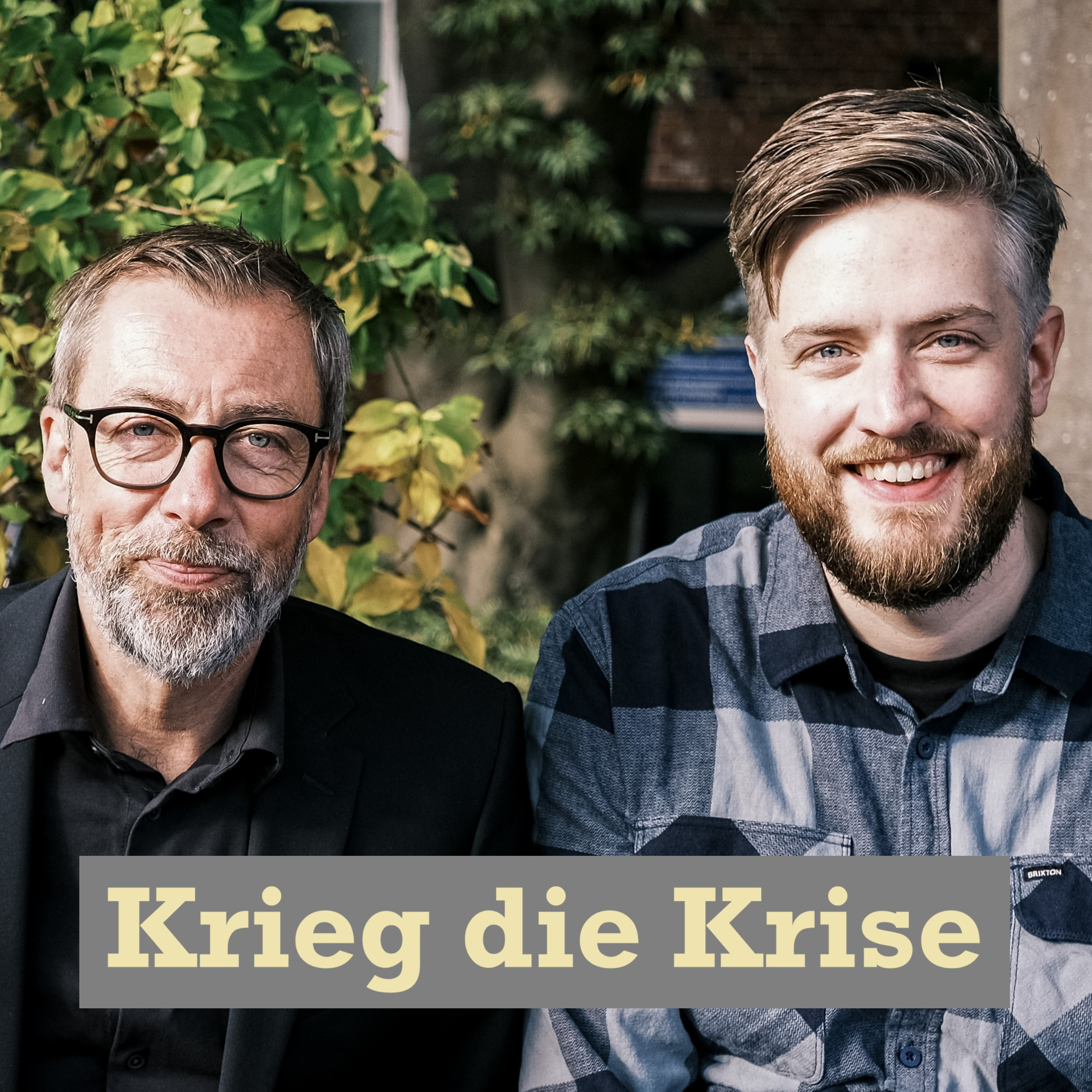
Krieg die Krise006 Bundesverband für Realität und WahnsinnFinanzpaket, Realitätsbegriff, Generationengerechtigkeit, Kampf um RessourcenJan wird von Eiern verfolgt und Dirk droppt 14 Namen!*** Shownotes ***---Details zum Genderdoppelpunktverbot in Hessen:https://www.hna.de/kassel/an-verbot-aus-wiesbaden-neuer-gender-streit-an-universitaet-kassel-kritik-93627461.html---Von Jan erwähnte Studie, die zeigt, dass Anliegen politisch eher umgesetzt werden, wenn sie Interessen der Wohlhabenden entsprechen und zu nicht direkt gewählten Institutionen:2022: Die Krise der Repräsentation und die entfremdete Demokratie. In: Kolja Möller (Hrsg.), Populismus. Ein Reader. Berlin: Suhrkamp Verlag, 329-366...
2025-03-2159 min
Latest 100 | LSE Public lectures and events | AudioFrom liberal peace to new Cold War? Turbulence and conflict in the 21st centuryContributor(s): Professor Barry Buzan, Dr Elizabeth Ingleson, Professor Vladislav Zubok | When Soviet power collapsed between 1989 and 1991, the overwhelming view in the West was that liberalism had triumphed.
The world could look forward to a period of peace and prosperity, underpinned by globalisation backed by American power. Today all of that early optimism has faded, to be replaced by a deep fear that the world is once again dividing into two camps very much like the Cold War of old.Featured image (used in source code with watermark added): Photo by Konrad Ciężki via Pexels: https://www.pexels.com/ph...
2025-01-281h 33
All items | LSE Public lectures and events | AudioFrom liberal peace to new Cold War? Turbulence and conflict in the 21st centuryContributor(s): Professor Barry Buzan, Dr Elizabeth Ingleson, Professor Vladislav Zubok | When Soviet power collapsed between 1989 and 1991, the overwhelming view in the West was that liberalism had triumphed.
The world could look forward to a period of peace and prosperity, underpinned by globalisation backed by American power. Today all of that early optimism has faded, to be replaced by a deep fear that the world is once again dividing into two camps very much like the Cold War of old.Featured image (used in source code with watermark added): Photo by Konrad Ciężki via Pexels: https://www.pexels.com/ph...
2025-01-281h 33
Latest 100 | LSE Public lectures and events | All media typesFrom liberal peace to new Cold War? Turbulence and conflict in the 21st centuryContributor(s): Professor Barry Buzan, Dr Elizabeth Ingleson, Professor Vladislav Zubok | When Soviet power collapsed between 1989 and 1991, the overwhelming view in the West was that liberalism had triumphed.
The world could look forward to a period of peace and prosperity, underpinned by globalisation backed by American power. Today all of that early optimism has faded, to be replaced by a deep fear that the world is once again dividing into two camps very much like the Cold War of old.Featured image (used in source code with watermark added): Photo by Konrad Ciężki via Pexels: https://www.pexels.com/ph...
2025-01-281h 33
All items | LSE Public lectures and events | All media typesFrom liberal peace to new Cold War? Turbulence and conflict in the 21st centuryContributor(s): Professor Barry Buzan, Dr Elizabeth Ingleson, Professor Vladislav Zubok | When Soviet power collapsed between 1989 and 1991, the overwhelming view in the West was that liberalism had triumphed.
The world could look forward to a period of peace and prosperity, underpinned by globalisation backed by American power. Today all of that early optimism has faded, to be replaced by a deep fear that the world is once again dividing into two camps very much like the Cold War of old.Featured image (used in source code with watermark added): Photo by Konrad Ciężki via Pexels: https://www.pexels.com/ph...
2025-01-281h 33
All items | LSE Public lectures and events | Audio and pdfFrom liberal peace to new Cold War? Turbulence and conflict in the 21st centuryContributor(s): Professor Barry Buzan, Dr Elizabeth Ingleson, Professor Vladislav Zubok | When Soviet power collapsed between 1989 and 1991, the overwhelming view in the West was that liberalism had triumphed.
The world could look forward to a period of peace and prosperity, underpinned by globalisation backed by American power. Today all of that early optimism has faded, to be replaced by a deep fear that the world is once again dividing into two camps very much like the Cold War of old.Featured image (used in source code with watermark added): Photo by Konrad Ciężki via Pexels: https://www.pexels.com/ph...
2025-01-281h 33
Latest 100 | LSE Public lectures and events | Audio and pdfFrom liberal peace to new Cold War? Turbulence and conflict in the 21st centuryContributor(s): Professor Barry Buzan, Dr Elizabeth Ingleson, Professor Vladislav Zubok | When Soviet power collapsed between 1989 and 1991, the overwhelming view in the West was that liberalism had triumphed.
The world could look forward to a period of peace and prosperity, underpinned by globalisation backed by American power. Today all of that early optimism has faded, to be replaced by a deep fear that the world is once again dividing into two camps very much like the Cold War of old.Featured image (used in source code with watermark added): Photo by Konrad Ciężki via Pexels: https://www.pexels.com/ph...
2025-01-281h 33
Latest 300 | LSE Public lectures and events | VideoFrom liberal peace to new Cold War? Turbulence and conflict in the 21st centuryContributor(s): Professor Barry Buzan, Dr Elizabeth Ingleson, Professor Vladislav Zubok | When Soviet power collapsed between 1989 and 1991, the overwhelming view in the West was that liberalism had triumphed.
The world could look forward to a period of peace and prosperity, underpinned by globalisation backed by American power. Today all of that early optimism has faded, to be replaced by a deep fear that the world is once again dividing into two camps very much like the Cold War of old.Featured image (used in source code with watermark added): Photo by Konrad Ciężki via Pexels: https://www.pexels.com/ph...
2025-01-281h 33
Latest 100 | LSE Public lectures and events | VideoFrom liberal peace to new Cold War? Turbulence and conflict in the 21st centuryContributor(s): Professor Barry Buzan, Dr Elizabeth Ingleson, Professor Vladislav Zubok | When Soviet power collapsed between 1989 and 1991, the overwhelming view in the West was that liberalism had triumphed.
The world could look forward to a period of peace and prosperity, underpinned by globalisation backed by American power. Today all of that early optimism has faded, to be replaced by a deep fear that the world is once again dividing into two camps very much like the Cold War of old.Featured image (used in source code with watermark added): Photo by Konrad Ciężki via Pexels: https://www.pexels.com/ph...
2025-01-281h 33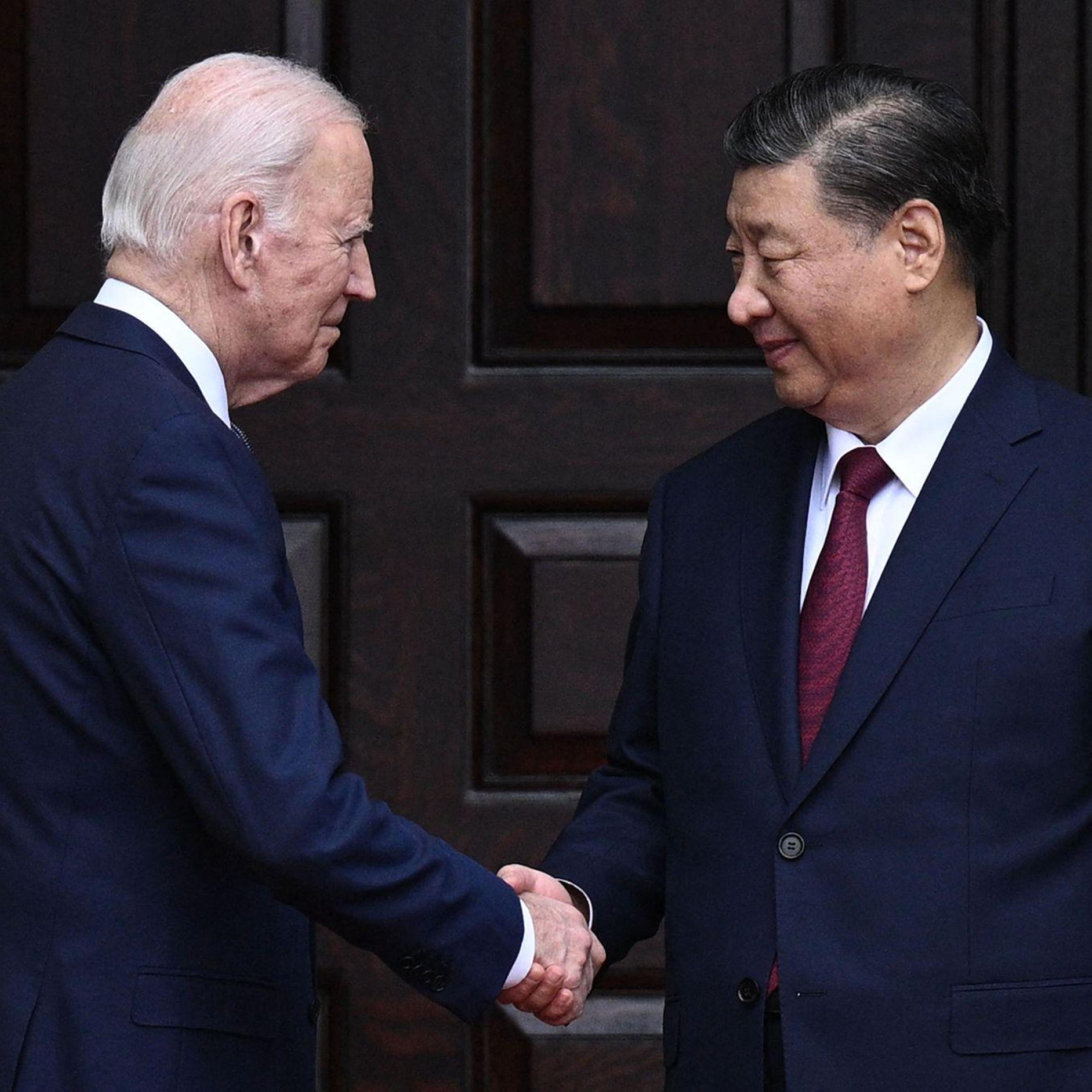
The President’s InboxA U.S.-China Cold War, With Robin NiblettSir Robin Niblett, distinguished fellow at Chatham House, sits down with James M. Lindsay to discuss a potential second Cold War between the United States and China.
Mentioned on the Episode
Graham Allison, Destined for War: Can American and China Escape Thucydides’ Trap?
Barry Buzan, “A New Cold War? The Case for a General Concept,” International Politics
Robin Niblett, “The G-7 Must Prepare Now for Trump,” Foreign Policy
Robin Niblett, The New Cold War: How the Contest Between the US and China Wil...
2024-07-2336 min
Technology and SecuritySPECIAL: Big Data, Emerging Technology & National Security Decision-Making LectureSpecial Episode: Big Data, Emerging Technology & National Security Decision-Making Lecture *Unfortunately, the episode we had planned to release today is still in production. Our guest was recalled to deal with a major cyber incident on the day of recording. This episode will hopefully be released soon.* Instead, by popular request, we are bringing you a special episode. This is an edited lecture I gave at ANU which covers big data and emerging technologies, their impacts on national security and how they create friction in national security decision-making. Big data isn't just a b...
2024-02-2036 min
The Medical MnemonistCreative Study Tactics w/ Mind Maps – Medical Mnemonics Series 3Show Notes
Homework
Create at least 1-3 mind maps
After creating your mind maps, try to recall them without visual aid
Check out Mind Map Mastery by Tony Buzan. Listen to our previous episode with Barry Mapp for additional tips on how to create mind maps. For more study tips, grab a copy of Read This Before Medical School. Don’t forget to leave a rating!
Share your experiences, tips, and suggestions to medicalmnemonist@gmail.com. Or you can directly reach out to Chase on LinkedIn, Twitter, or Instagram. Join the Medical Mnemonist Master Mind ...
2024-01-2215 min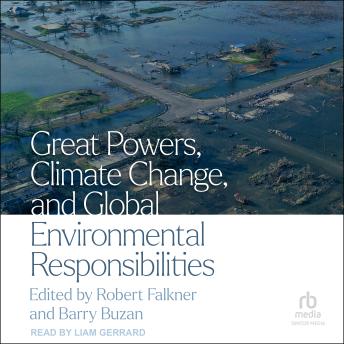
Discover: This Critically-Acclaimed Full Audiobook For Knowledge Hunters.Great Powers, Climate Change, and Global Environmental Responsibilities by Barry Buzan, Robert FalknerPlease visithttps://thebookvoice.com/podcasts/1/audiobook/656007to listen full audiobooks.
Title: Great Powers, Climate Change, and Global Environmental Responsibilities
Author: Barry Buzan, Robert Falkner
Narrator: Liam Gerrard
Format: Unabridged Audiobook
Length: 11 hours 50 minutes
Release date: June 20, 2023
Genres: Animals & Nature
Publisher's Summary:
This book is the first of its kind to examine the role of great powers in the international politics of climate change. It develops a novel analytical framework for studying environmental power in international relations, what counts as a great power in the environmental field, and what their special environmental responsibilities are. In doing so, the book connects International...
2023-06-2011h 50
Find Best-Selling Full Audiobooks in Non-Fiction, Animals & NatureGreat Powers, Climate Change, and Global Environmental Responsibilities by Barry Buzan, Robert FalknerPlease visithttps://thebookvoice.com/podcasts/1/audiobook/656007to listen full audiobooks.
Title: Great Powers, Climate Change, and Global Environmental Responsibilities
Author: Barry Buzan, Robert Falkner
Narrator: Liam Gerrard
Format: Unabridged Audiobook
Length: 11 hours 50 minutes
Release date: June 20, 2023
Genres: Animals & Nature
Publisher's Summary:
This book is the first of its kind to examine the role of great powers in the international politics of climate change. It develops a novel analytical framework for studying environmental power in international relations, what counts as a great power in the environmental field, and what their special environmental responsibilities are. In doing so, the book connects International...
2023-06-2011h 50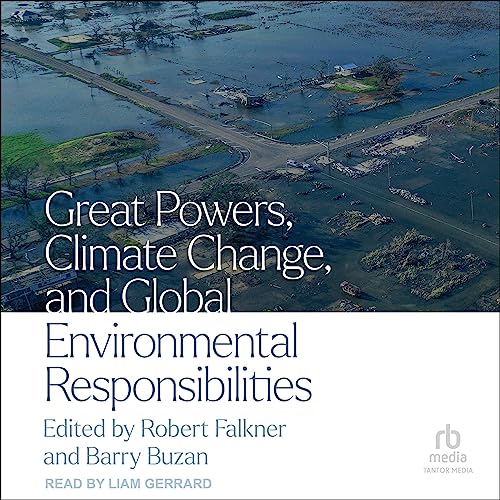
Unlock Into A Binge-Worthy Full Audiobook On A Rainy Day.Great Powers, Climate Change, and Global Environmental Responsibilities by Robert Falkner - editor, Barry Buzan - editorPlease visithttps://thebookvoice.com/podcasts/2/audible/225212to listen full audiobooks.
Title: Great Powers, Climate Change, and Global Environmental Responsibilities
Author: Robert Falkner - editor, Barry Buzan - editor
Narrator: Liam Gerrard
Format: mp3
Length: 11 hrs and 50 mins
Release date: 06-20-23
Ratings: Not rated yet
Genres: Environmental
Publisher's Summary:
This book is the first of its kind to examine the role of great powers in the international politics of climate change. It develops a novel analytical framework for studying environmental power in international relations, what counts as a great power in the environmental field, and what their special environmental responsibilities...
2023-06-2011h 50
Get Top Full Audiobooks in Business & Economics, EconomicsGreat Powers, Climate Change, and Global Environmental Responsibilities by Barry Buzan, Robert FalknerPlease visithttps://thebookvoice.com/podcasts/1/audiobook/656007to listen full audiobooks.
Title: Great Powers, Climate Change, and Global Environmental Responsibilities
Author: Barry Buzan, Robert Falkner
Narrator: Liam Gerrard
Format: Unabridged Audiobook
Length: 11 hours 50 minutes
Release date: June 20, 2023
Genres: Economics
Publisher's Summary:
This book is the first of its kind to examine the role of great powers in the international politics of climate change. It develops a novel analytical framework for studying environmental power in international relations, what counts as a great power in the environmental field, and what their special environmental responsibilities are. In doing so, the book connects International Relations...
2023-06-2011h 50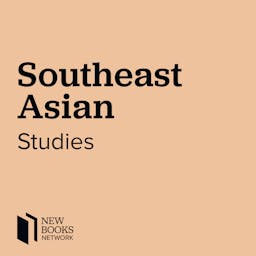
New Books in Southeast Asian StudiesAmitav Acharya, "Tragic Nation: Burma--Why and How Democracy Failed" (Penguin Random House, 2023)In mid-April, Myanmar’s military bombed a village in the country’s northwest, killing over a hundred people in what’s been considered the deadliest attack in the now two-year civil war in the country: The result of the Myanmar military’s coup in February 2021.The airstrike happened after my conversation with Professor Amitav Acharya, author of Tragic Nation Burma--Why and How Democracy Failed (Penguin Random House SEA, 2022). Yet it’s a reminder of the coup and the civil war’s consequences for the people of Myanmar.Amitav Acharya is the UNESCO Chair in Transnational Challenges and...
2023-05-0453 min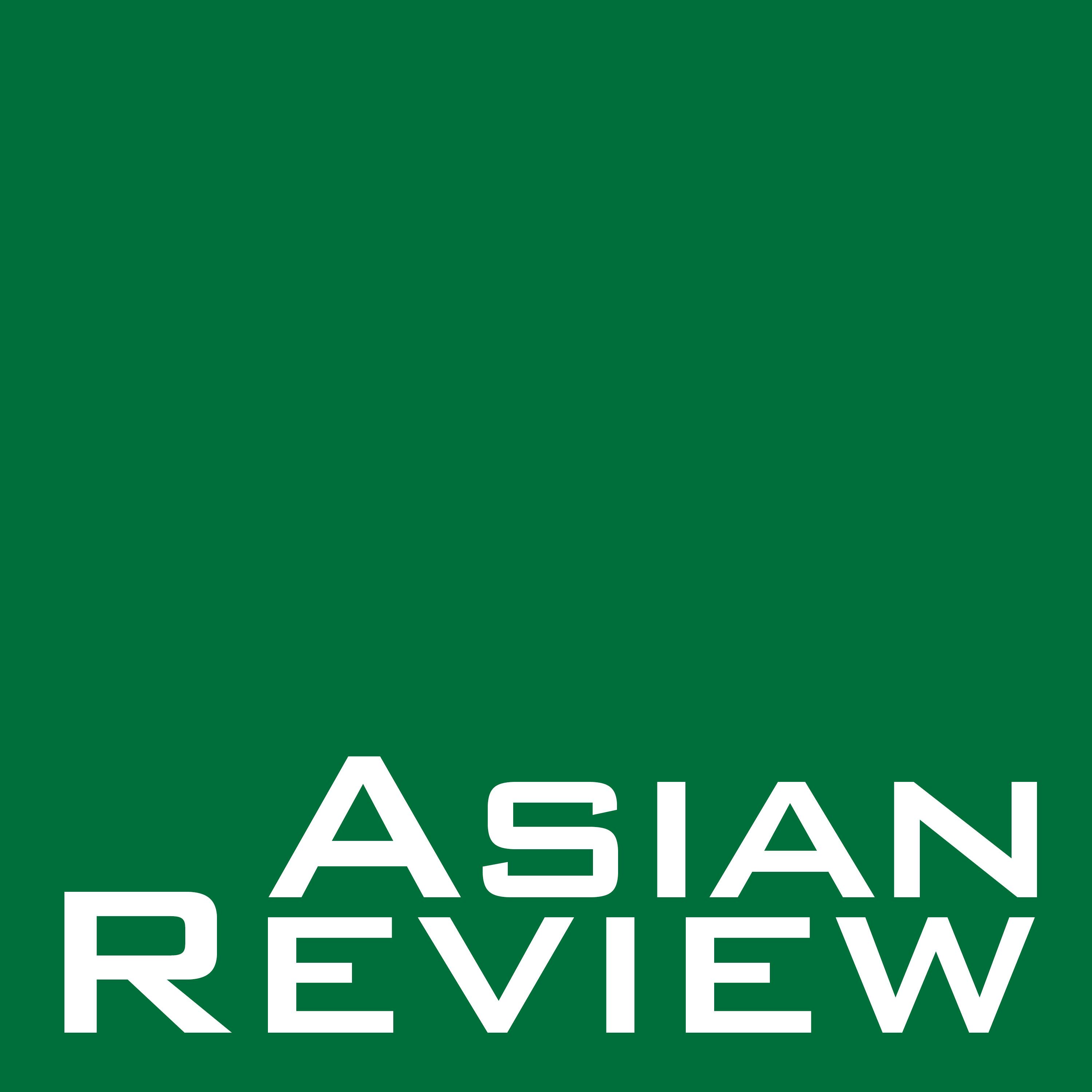
Asian Review of BooksAmitav Acharya, "Tragic Nation: Burma--Why and How Democracy Failed" (Penguin Random House, 2023)In mid-April, Myanmar’s military bombed a village in the country’s northwest, killing over a hundred people in what’s been considered the deadliest attack in the now two-year civil war in the country: The result of the Myanmar military’s coup in February 2021.The airstrike happened after my conversation with Professor Amitav Acharya, author of Tragic Nation Burma--Why and How Democracy Failed (Penguin Random House SEA, 2022). Yet it’s a reminder of the coup and the civil war’s consequences for the people of Myanmar.Amitav Acharya is the UNESCO Chair in Transnational Challenges and...
2023-05-0453 min
DicotomiaABC das RI #19: Segurança
No episódio de hoje da nossa série ABC das RI, Rafaela fala sobre segurança, um dos conceitos-chave para análise das Relações Internacionais.
⚠️ Siga o @dicotomia_cast no Instagram e Twitter. Assine a nossa newsletter Dicotomias Expressas. ⚠️
▊▊▊▊▊▊▊▊▊▊▊▊▊▊▊▊▊▊▊▊▊▊▊▊▊▊▊▊▊▊▊▊▊▊▊▊▊
Indicações e referências
Barry Buzan e Lene Hansen - A Evolução dos Estudos de Segurança Internacional. Trad. Flávio. Lira. São Paulo: Editora Unesp, 2012. 576p.
Héctor Luis Saint-Pierre e Marina Gisela Vitelli [organizadores]. Dicionário de segurança e defesa. 1.ª edição, Imprensa Oficial, Governo do Estado de São Paulo : Editora Unesp, 2018.
ABC das RI #18: R...
2023-04-2809 min
DÖNÜŞÜMÜN TASARIM PUSULASIYaşamı Tasarımında, Zihin Haritaları PusulasıMesele, "mükemmeli" bulmak değil, elinizdekileri "mükemmelleştirebilmek"..
Daha İyi bir Yaşam için Dönüşümü Tasarlarken, yargılardan uzaklaşıp,kendinizi sansürlemeden ve sabote etmeden:),özgün fikirlerinizi ortaya koyabilmek çok önemlidir.
Kendi kendinize fikirler üretebilmek, ama bu fikirleri de, kendi İYİ Zamanlar Günlüğünüzde fark edip keşfettiğiniz bulgularla hizalayarak, yani noktaları birleştirerek yapabilmeniz için harika bir teknik var, ZİHİN HARİTALARI. Zihin Haritaları, hafızanızı, yaratıcılığınızı, konsantrasyonunuzu arttırmak, yetenek ve becerilerinizi geliştirmek ve pratikleşmek,hatta yaşamınızı kolaylaştırmak için...
2022-12-0929 min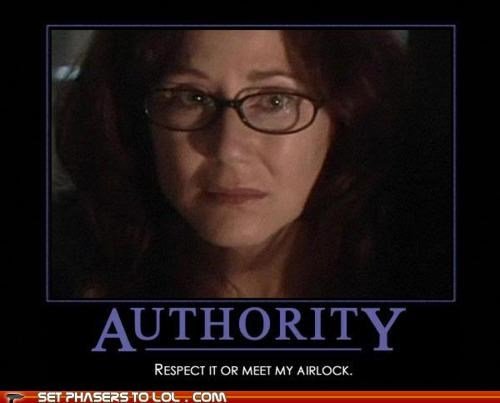
Weird Religion084 THE BSG (Battlestar Galactica and the politics of polytheism)With Brian having finally finished BSG, it is now time for Leah to guide him through thinking about its meaning and weird religious implications. Along the way, we’re offering a sampler of highlights from the world of religion and pop culture scholarship engaging with the show. We consider the gritty political context of the BSG universe and the show’s spiritual messages, and we ponder the fate of polytheism as a concept. SOURCES CITED AND TO ENJOYProfessor Juli Gittinger: https://www.gcsu.edu/artsandsciences/philosophy/faculty-staff-department-of-philosophy-religion-and-liberal-studies Dr. Shayna Sheinfeld: https://twitter.com...
2022-04-1345 min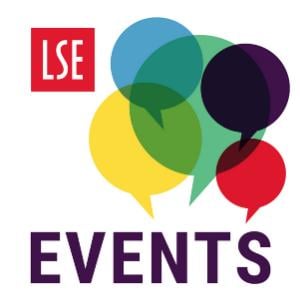
Demos Helsinki PodcastGreat Powers, Climate Change and Global Environmental Responsibilities Podcast: LSE: Public lectures and events (LS 54 · TOP 0.5% what is this?)Episode: Great Powers, Climate Change and Global Environmental ResponsibilitiesPub date: 2022-03-14Notes from Demos Helsinki Podcast:Discussing how international power inequality intersects with the global ecological crisis, and what special role great powers could and should play in the international fight against global warmingGet Podcast Transcript →powered by Listen411 - fast audio-to-text and summarizationContributor(s): Dr Alina Averchenkova, Professor Barry Buzan, Professor Kathy Hochstetler, Dr Miriam Prys-Hansen, Professor Stacy Vandeveer | Great powers are...
2022-03-241h 29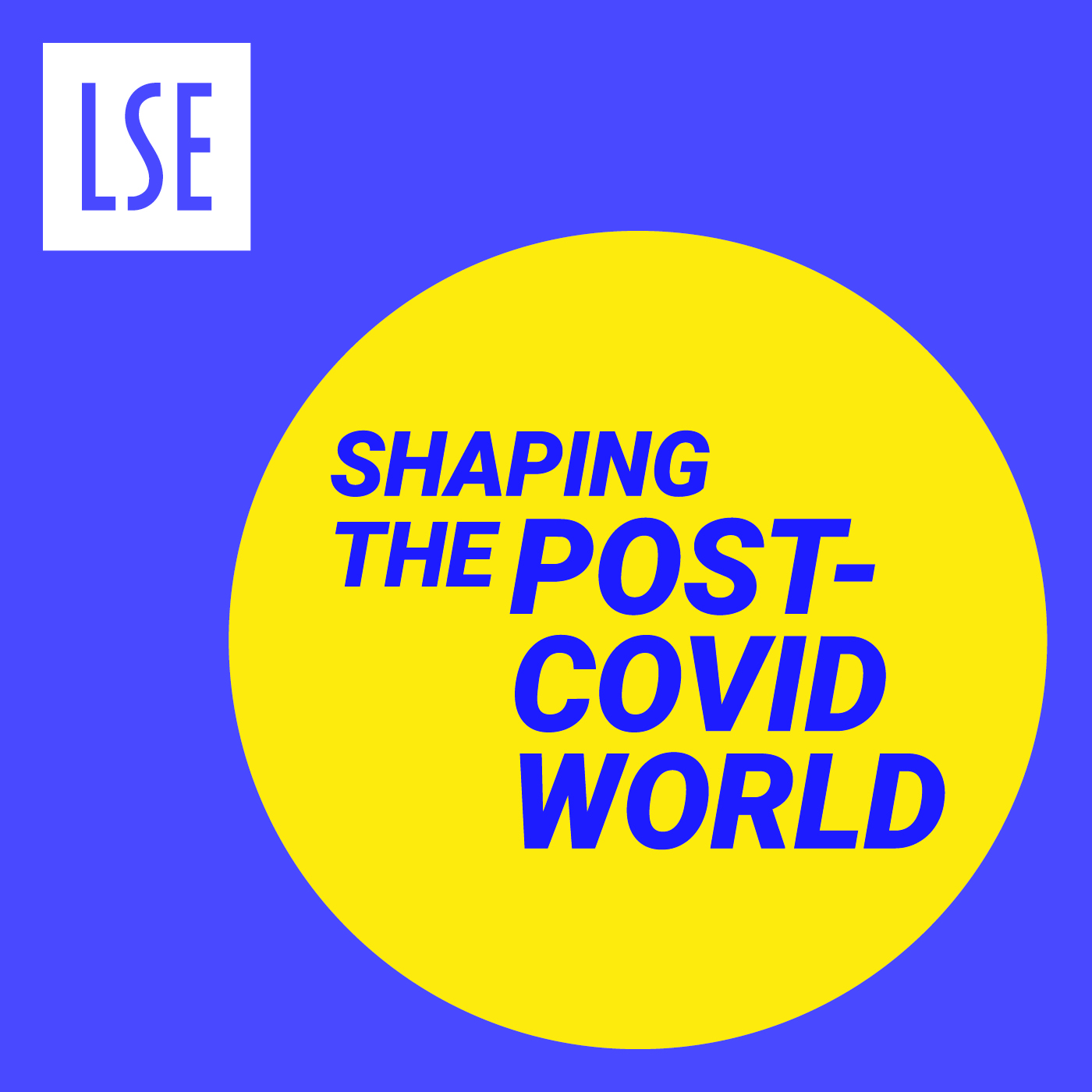
Shaping the Post-COVID WorldGreat Powers, Climate Change and Global Environmental ResponsibilitiesContributor(s): Dr Alina Averchenkova, Professor Barry Buzan, Professor Kathy Hochstetler, Dr Miriam Prys-Hansen, Professor Stacy Vandeveer | Great powers are also great polluters, particularly when it comes to the global greenhouse gas effect. Through the 2015 Paris Agreement and recent international conferences, all major powers - from the United States to China, India, Brazil, Russia and the EU - have committed to bringing greenhouse gas emissions under control and decarbonising their economies by 2050.
2022-03-141h 29
Shaping the Post-COVID WorldSHORTCAST | Environmentalism and Global International SocietyContributor(s): Professor Steven Bernstein, Professor Barry Buzan, Dr Robert Falkner, Professor Kathy Hochstetler | Climate change and other environmental threats have moved to the top of the international agenda. All major powers are now committed to fighting global warming and ensuring environmental sustainability. But it has not always been thus. How did the society of states come to accept a responsibility for the global environment? And how deeply committed are states to safeguarding the planet?
2022-01-1623 min
Dicotomia#24: “Tão longe de Deus, tão perto dos Estados Unidos”“Pobre México, tan lejos de Dios y tan cerca de Estados Unidos…”
Olha, não é que o Dicotomia está mandando ver no español?
E no episódio de hoje nossos belíssimos latino-americanos (sem dinheiro no banco, sem parentes importantes e estudantes de EAD..) do dicotomia te mostrarão o poder da palavra:
Nossa equipe traz uma reflexão sobre a questão dos fluxos migratórios do México para os Estados Unidos como uma pauta de segurança, além de uma breve análise da construção dos discursos que colocam o...
2021-05-2831 min
Du Vent Sous La RobeBenjamin English – La justice de demain !Bonjour et bienvenue dans Du Vent Sous La Robe, le podcast qui vous emmène à la rencontre d’acteurs innovants qui construisent le droit de demain.
Pour cette dix-huitième interview, j’accueille Benjamin English.
Benjamin est avocat en contentieux civil, commercial et de la responsabilité professionnelle des avocats au sein du cabinet Avril & Marion. Mais il est également arbitre en ligne sur Madecision.com, une plateforme d'arbitrage et de médiation en ligne exploitée par Eurojuris.
Dans cet épisode, nous avons notamment discuté de :
- La justice de...
2021-01-0558 min
UnderDocsHöchste Kameradichte der Welt
window.podcastDatab77bb5b6c0da89 = {"title":"UnderDocs","subtitle":"Der Wissenschaftspodcast aus Studierendenhand.","description":"","cover":"https:\/\/underdocs.org\/podlove\/image\/68747470733a2f2f756e646572646f63732e6f72672f77702d636f6e74656e742f75706c6f6164732f323032302f30342f636f7665722d6172742d7374616e646172642d7363616c65642e6a7067\/400\/0\/0\/underdocs","feeds":[{"type":"audio","format":"mp3","url":"https:\/\/underdocs.org\/feed\/mp3\/","variant":"high"},{"type":"audio","format":"aac","url":"https:\/\/underdocs.org\/feed\/aac\/","variant":"high"}]};
if (typeof SubscribeButton == 'undefined') {
document.write(unescape("%3Cscript class=\"podlove-subscribe-button\" src=\"https://underdocs.org/wp-content/plugins/podlove-podcasting-plugin-for-wordpress/lib/modules/subscribe_button/dist/javascripts/app.js\" d...
2020-12-241h 43
Medical Mnemonist (from MedEd University)Mind Map Mastery for Medical Students with Barry Mapp (Ep. 40 Rebroadcast)Barry Mapp is a learning instructor that trained under the memory champion and mind map creator, Tony Buzan. He has successfully trained thousands of learners in mind map technique and creation. Today, he is going to help explain how we can use these organization and memory tool in medical school.
2020-12-1736 min
Unutmadan SöyleyeyimBölüm 6: Makale İncelemesi #1: "Uluslararası İlişkilerin Temel Tarihlerini Yeniden Düşünmek (Barry Buzan,George Lawson)"Bu podcastte ilgi çekici olduğunu düşündüğüm bir makale incelemesiyle karşınızdayım. Barry Buzan ve George Lawson tarafından Uluslararası İlişkilerdeki temel tarihlerin masaya yatırıldığı ve sorgulandığı bu çalışmayı sizlerin incelemesine sunuyorum.
2020-10-0456 min
IRID podcastSeminários Virtuais do IRID - Migrações e a Covid 19O Seminário Virtual do IRID dessa semana trata da questão migratória e a Covid-19. O debate é conduzido pela professora Daniele Dionisio (IRID-UFRJ) e tem como participantes das professoras Flavia Guerra (IRID-UFRJ), Ana Paula Rodriguez (Coppead-UFRJ) e Rachel Coutinho (Doutoranda - PUC-Rio).
Referências citadas:
MALKKI, Liisa. Refugees and Exile: From “Refugee Studies” to the National Order of Things. Annual Review of Anthropology, vol. 24, 1995.
AGAMBEN, Giorgio. Reflexiones sobre la peste. In: Sopa de Wuhan. Editorial ASPO (Aislamiento Social Preventivo e Obrigatório), março de 2020.
WAEVER, Ole, BUZAN, Barr...
2020-06-221h 15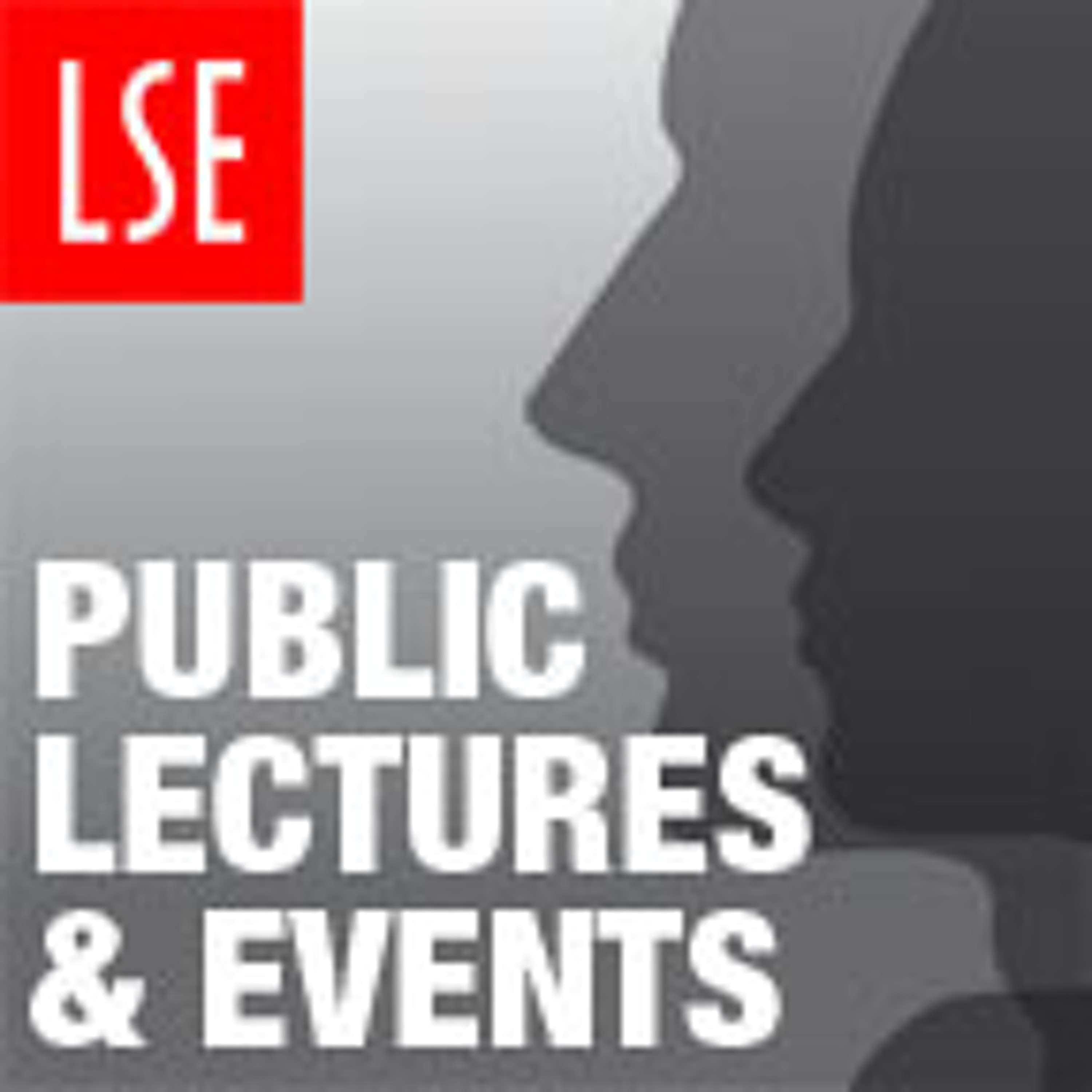
LSE PodcastsFrom 1919 to 2019: pivotal lessons from Versailles [Audio]Speaker(s): Professor Barry Buzan, Professor Margaret MacMillan, Professor David Stevenson, Professor Linda Yueh | A panel of distinguished scholars will here discuss the legacy of the First World War, the Versailles Peace Treaty which followed, and why the treaty has been so hotly debated ever since by critics and defenders alike. This event will also mark the relaunch of John Maynard Keynes’s justly famous The Economic Consequences of the Peace, first published in December 1919 and now republished with a new, definitive introduction by Professor Michael Cox, Director of LSE IDEAS. To pre-order a copy of the book, which can be...
2019-11-281h 32
Medical Mnemonist (from MedEd University)40 Mind Map Mastery for Medical Students with Barry MappBarry Mapp, a learning instructor that trained under a memory champion and mind map creator, explains how to use these memory tools in medical school. Barry Mapp is a learning instructor that trained under the memory champion and mind map creator, Tony Buzan. He has successfully trained thousands of learners in mind map technique and creation. Today, he is going to help explain how we can use these organization and memory tools in medical school. Intro 5:05 “Left Brain” vs “Right Brain” Myths and Truths: Getting the BIG Picture First 11:55 How to Create a...
2019-11-2638 min
Spring 2016 | Public lectures and events | Audio and pdfLiterary Festival 2016: To Boldly Go: what Star Trek tells us about the worldContributor(s): Professor Michèle Barrett, Duncan Barrett, Professor Barry Buzan, Professor Steven French | Celebrating Star Trek’s 50th anniversary, our panel will explore what this enduring science fiction series can tell us about attitudes to international relations, science and society. Michèle Barrett is Professor of Modern Literary and Cultural Theory at Queen Mary University, London and author, with her son Duncan Barrett of Star Trek: the Human Frontier. Her recent work has focused on the literature and art of the First World War period. Duncan Barrett (@WW1Stories) is a best-selling author. In 2010 he edited the First World War...
2016-02-261h 24
Spring 2016 | Public lectures and events | VideoLiterary Festival 2016: To Boldly Go: what Star Trek tells us about the worldContributor(s): Professor Michèle Barrett, Duncan Barrett, Professor Barry Buzan, Professor Steven French | Celebrating Star Trek’s 50th anniversary, our panel will explore what this enduring science fiction series can tell us about attitudes to international relations, science and society. Michèle Barrett is Professor of Modern Literary and Cultural Theory at Queen Mary University, London and author, with her son Duncan Barrett of Star Trek: the Human Frontier. Her recent work has focused on the literature and art of the First World War period. Duncan Barrett (@WW1Stories) is a best-selling author. In 2010 he edited the First World War...
2016-02-261h 24
Spring 2015 | Public lectures and events | Audio and pdfThe Global Transformation: history, modernity and the making of international relationsContributor(s): Professor Barry Buzan, Professor Craig Calhoun, Dr George Lawson, Professor Juergen Osterhammel, Dr Ayse Zarakol | This event marks the launch of a new book: The Global Transformation: history, modernity and the making of international relations, co-authored by Barry Buzan and George Lawson. Barry Buzan is Emeritus Professor in the Department of International Relations at LSE and a Fellow of the British Academy. Craig Calhoun (@craigjcalhoun) is Director and President of LSE. George Lawson is an Associate Professor in the Department of International Relations at LSE. Jurgen Osterhammel is Professor of Modern History at the University of Konstanz and...
2015-03-171h 27
Spring 2015 | Public lectures and events | VideoThe Global Transformation: history, modernity and the making of international relationsContributor(s): Professor Barry Buzan, Professor Craig Calhoun, Dr George Lawson, Professor Juergen Osterhammel, Dr Ayse Zarakol | This event marks the launch of a new book: The Global Transformation: history, modernity and the making of international relations, co-authored by Barry Buzan and George Lawson. Barry Buzan is Emeritus Professor in the Department of International Relations at LSE and a Fellow of the British Academy. Craig Calhoun (@craigjcalhoun) is Director and President of LSE. George Lawson is an Associate Professor in the Department of International Relations at LSE. Jurgen Osterhammel is Professor of Modern History at the University of Konstanz and...
2015-03-171h 27
Autumn 2014 | Public lectures and events | VideoThe Paradox of China's Peaceful RiseContributor(s): Professor Barry Buzan, Professor Arne Westad | Despite the widespread view that China does not have a coherent grand strategy, China has already articulated one that is based on the home-grown idea of ‘peaceful rise/development’ (PRD). The key issue is whether the logic of this grand strategy, and the contradictions within it, are fully understood, and whether China has sufficient depth and coherence in its policy-making processes to implement such a strategy. This lecture will explore key issues arising from the idea of ‘Peaceful Rise/Development’. Professor Barry Buzan is a senior fellow at LSE IDEAS and the Montague...
2014-10-071h 30
2014 | LSE Public lectures and events | Audio and pdfThe Paradox of China's Peaceful RiseContributor(s): Professor Barry Buzan, Professor Arne Westad | Despite the widespread view that China does not have a coherent grand strategy, China has already articulated one that is based on the home-grown idea of ‘peaceful rise/development’ (PRD). The key issue is whether the logic of this grand strategy, and the contradictions within it, are fully understood, and whether China has sufficient depth and coherence in its policy-making processes to implement such a strategy. This lecture will explore key issues arising from the idea of ‘Peaceful Rise/Development’. Professor Barry Buzan is a senior fellow at LSE IDEAS and the Montague...
2014-10-071h 30
Autumn 2014 | Public lectures and events | Audio and pdfThe Paradox of China's Peaceful RiseContributor(s): Professor Barry Buzan, Professor Arne Westad | Despite the widespread view that China does not have a coherent grand strategy, China has already articulated one that is based on the home-grown idea of ‘peaceful rise/development’ (PRD). The key issue is whether the logic of this grand strategy, and the contradictions within it, are fully understood, and whether China has sufficient depth and coherence in its policy-making processes to implement such a strategy. This lecture will explore key issues arising from the idea of ‘Peaceful Rise/Development’. Professor Barry Buzan is a senior fellow at LSE IDEAS and the Montague...
2014-10-071h 30
2014 | LSE Public lectures and events | VideoThe Paradox of China's Peaceful RiseContributor(s): Professor Barry Buzan, Professor Arne Westad | Despite the widespread view that China does not have a coherent grand strategy, China has already articulated one that is based on the home-grown idea of ‘peaceful rise/development’ (PRD). The key issue is whether the logic of this grand strategy, and the contradictions within it, are fully understood, and whether China has sufficient depth and coherence in its policy-making processes to implement such a strategy. This lecture will explore key issues arising from the idea of ‘Peaceful Rise/Development’. Professor Barry Buzan is a senior fellow at LSE IDEAS and the Montague...
2014-10-071h 30
Spring 2014 | Public lectures and events | Audio and pdfThe Future of the Liberal World OrderContributor(s): Professor Barry Buzan, Trine Flockhart, Professor John Ikenberry, Professor Charles Kupchan | This roundtable of eminent scholars will debate the future of the liberal international order. The liberal order is a global system based on shared norms, economic openness, and commitment to cooperation through multilateral institutions. Will this system of global governance persist, or is the global system likely to become more fragmented, mercantilist, and more conflictual? Barry Buzan is emeritus professor of international relations at the London School of Economics and Political Science and honorary professor at the University of Copenhagen and Jilin University. Trine Flockhart is senior...
2014-01-231h 32
Spring 2014 | Public lectures and events | VideoThe Future of the Liberal World OrderContributor(s): Professor Barry Buzan, Trine Flockhart, Professor John Ikenberry, Professor Charles Kupchan | This roundtable of eminent scholars will debate the future of the liberal international order. The liberal order is a global system based on shared norms, economic openness, and commitment to cooperation through multilateral institutions. Will this system of global governance persist, or is the global system likely to become more fragmented, mercantilist, and more conflictual? Barry Buzan is emeritus professor of international relations at the London School of Economics and Political Science and honorary professor at the University of Copenhagen and Jilin University. Trine Flockhart is senior...
2014-01-231h 32
Minerva CastPodcast No. 15 - Interview with Barry BuzanThe fifteenth Duck of Minerva podcast features Barry Buzan. Professor Buzan discusses his academic and intellectual biography, his major works, and his ongoing projects. For additional background readers might consult the interview at Theory Talks or at the London School of Economics Department of International Relations blog. In short, Buzan is a toweringly influential figure in international relations in general, and outside the US in particular. He is also, among numerous contributions to the discipline, a former editor of the European Journal of International Relations.I should reiterate important change to procedures. From now on, the Minervacast feed...
2012-12-0700 min
Summer 2011 | Public lectures and events | VideoA World Without Superpowers: de-centered globalismContributor(s): Professor Barry Buzan | As the inequality of power between the West and the rest diminishes, the most likely scenario for world politics is de-centered globalism, in which there will be no superpowers. But what does a world with no superpowers mean for regional coexistence and international cooperation? Barry Buzan is Montague Burton Professor of International Relations at LSE and senior fellow at LSE IDEAS.
2011-05-101h 32
Summer 2011 | Public lectures and events | Audio and pdfA World Without Superpowers: de-centered globalismContributor(s): Professor Barry Buzan | As the inequality of power between the West and the rest diminishes, the most likely scenario for world politics is de-centered globalism, in which there will be no superpowers. But what does a world with no superpowers mean for regional coexistence and international cooperation? Barry Buzan is Montague Burton Professor of International Relations at LSE and senior fellow at LSE IDEAS.
2011-05-101h 32
Summer 2011 | Public lectures and events | Audio and pdfA World Without Superpowers: de-centered globalismContributor(s): Professor Barry Buzan | As the inequality of power between the West and the rest diminishes, the most likely scenario for world politics is de-centered globalism, in which there will be no superpowers. But what does a world with no superpowers mean for regional coexistence and international cooperation? Barry Buzan is Montague Burton Professor of International Relations at LSE and senior fellow at LSE IDEAS.
2011-05-101h 32
Summer 2011 | Public lectures and events | VideoA World Without Superpowers: de-centered globalismContributor(s): Professor Barry Buzan | As the inequality of power between the West and the rest diminishes, the most likely scenario for world politics is de-centered globalism, in which there will be no superpowers. But what does a world with no superpowers mean for regional coexistence and international cooperation? Barry Buzan is Montague Burton Professor of International Relations at LSE and senior fellow at LSE IDEAS.
2011-05-101h 32
Spring 2009 | Public lectures and events | VideoChina in International Society: can 'peaceful rise' succeed?Contributor(s): Professor Barry Buzan | China has moved closer to international society on regional and global levels. The tide of history will probably favour China's peaceful rise, but the country will need to act to ensure this happens.
2009-03-101h 30
2006 | LSE Public lectures and events | Audio and pdfWill the Global 'War on Terrorism' be the New Cold War?Contributor(s): Professor Barry Buzan | Many have talked of the 'war on terror' as if it were a new Cold War. This simplistic and misleading understanding is subject to a major critique by one of the leading writers on international relations today. Copyright (c)
2006-10-041h 31
Autumn 2006 | Public lectures and events | Audio and pdfWill the Global 'War on Terrorism' be the New Cold War?Contributor(s): Professor Barry Buzan | Many have talked of the 'war on terror' as if it were a new Cold War. This simplistic and misleading understanding is subject to a major critique by one of the leading writers on international relations today. Copyright (c)
2006-10-041h 31